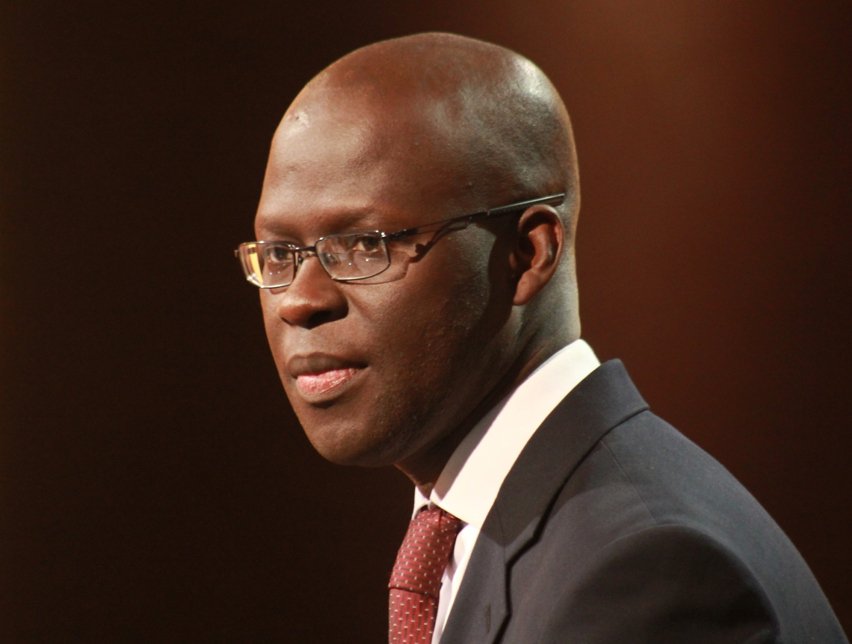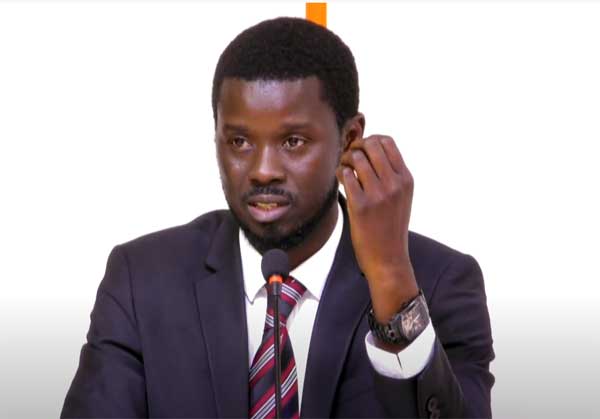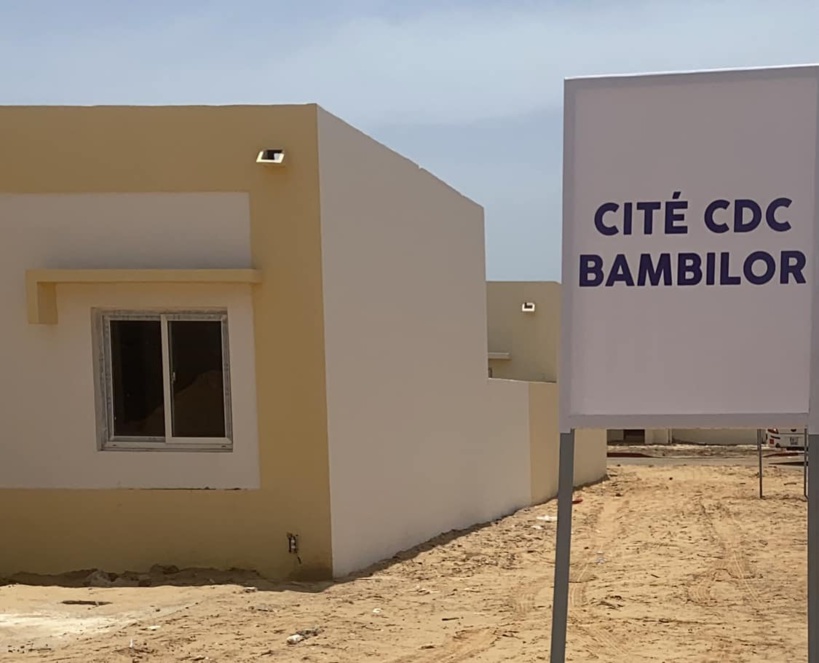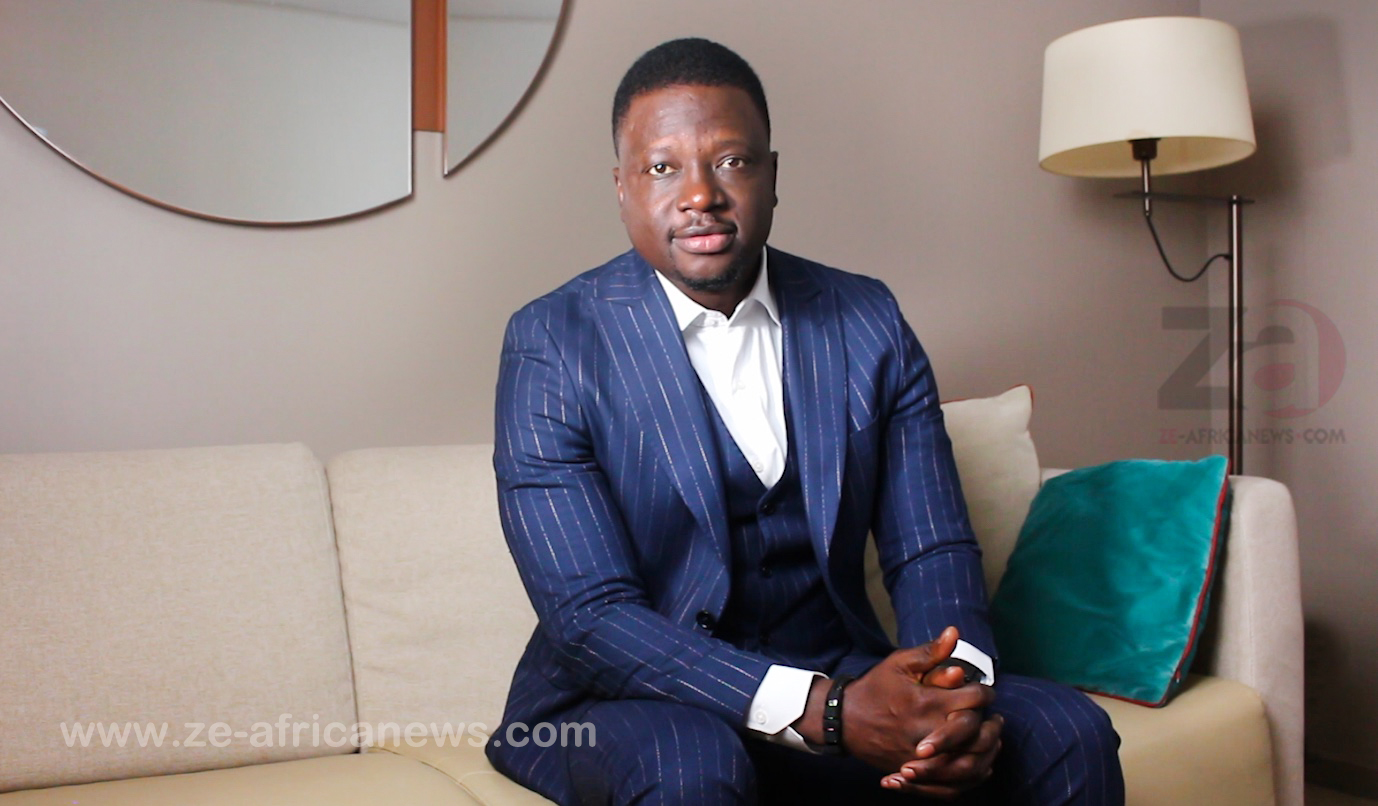POLITICS
SENEGAL-LEGISLATIVE: Cheikh Bamba Dièye, the providential man.

Cheikh Bamba Dièye is a Senegalese politician, secretary-general of the FSD / BJ, a political party resolutely in the struggle for the development of Senegal and the preservation of its cardinal values. In the recent past, he has had the immense honor of serving the Government of Senegal as Minister of Communication and Digital Economy, but also the city of Saint Louis as Mayor. He also wrote a book in the form of testimony “Senegal, therapy for an injured country”. Ze-Africanews.com met him.
How did you get into politics?
Very naturally I want to say. I was educated by a man very passionate about public life. My father, as it is about him, believed a lot in man and in ability to change things with will and a sincere commitment. He experimented it at a local level, in Saint Louis, in this case with a local movement, and then at a national level with the party I lead today. It is to tell you that I grew up in that atmosphere and that I was at his side at every stage of this commitment as an activist. So, of course, I entered politics.
For the next parliamentary elections, you formed a coalition “MANKOO TAXAWU SENEGAAL”, together for a people’s assembly, how was this coalition born?
This coalition was born of a common desire to put an end to the abuses of the current regime and to offer our compatriots a credible alternative, notably to represent them in the national assembly. I am not going to dwell on the outcome of the outgoing legislature, whose plenipotentiaries themselves agree that it was not up to the task and why we fought so hard. Remember that this country almost collapsed because the national representation was under the orders of a man that the government had finished making “crazy”. Who could have imagined that five years later we would find ourselves making such an assessment of the assembly that had triumphed over this attempt at democratic regression? Not great world I think. But I would like to reassure the Senegalese and tell them that in the political arena there are people who are still standing up against the principles in the name of which the people had risen on 23 June. People who refuse the arbitrariness and political manipulation of the justice of our country. People who do not accept that the rules of the democratic game are bypassed by knowingly imprisoning a political opponent. These people thought it was good for Senegal to ignore the leadership quarrels and find themselves in the coalition Manko Taxawu Senegal.
“The Senegalese deserve a better representation than what we have witnessed for 5 years. Senegalese deserve representatives who take into account their daily concerns independently of the desideratas of the President of the Republic.”
And of whom is this coalition composed? And why a selection of tenors of the political ring?
In this coalition you have people whose political course speaks for itself. And contrary to what you say there has been no selection on the basis of leadership. Rather, there has been a convergence of views among different political leaders. First, the refusal of arbitrariness, as I said earlier. We all agreed that the arrest of Khalifa Sall was unacceptable and the symbol was strong enough to make him the head of the list. Then we all consider that the ideals of June 23 have been betrayed and we make it a point of honor to continue to represent them. Finally, we have a real convergence of views on the priorities of this country and it does not translate into figures or program lines but into attitudes of government. The sober and virtuous governance will not eternally remain an empty and hollow slogan. When you have a Khalifa Sall which everyone praises his work in Dakar; When you have a former prime minister of Idrissa Seck; When you have Malick Gackou, Serigne Mansour Sy Djamil, Moussa Tine, your servant and so on … you have no guarantee what will be the result of their actions but you are certain that they will fight until For the sake of the Senegalese people. And in the context in which we have evolved over the last few years, it has become a rare commodity a politician resolutely committed to the cause of the people.
Your coalition wants a change in the physiognomy of the National Assembly, why is change necessary?
As I told you earlier, the Senegalese deserve a better representation than what we have witnessed for 5 years. Senegalese deserve representatives who take into account their daily concerns independently of the desideratas of the President of the Republic. Our compatriots deserve a national assembly that has a high opinion of separation and balance of power. It has become more than a necessity. You know by nature that man, whoever he is, is tempted to abuse the powers he holds. This is the raison d’etre of the safeguards in our republic. We often hear power saying that if we had the majority, the country would be paralyzed. It is as if you were saying that when you put a policeman at a crossroads, you are paralyzing traffic. It is an aberration, unless the gendarme does his job badly or the motorists have no intent to respect the rules. I am afraid that we will not be in the latter case. Senegalese can be sure that if they send us to the national assembly, it will recover from its superb and play its full role.
“It is not up to the national assembly to define the policy of our country, but it can greatly contribute to improving it.”
What brings your coalition back into the Senegalese political landscape?
It is always difficult to claim the novelty because it is no guarantee of efficiency. Rather, we are demanding constancy in our positions. You will find in many other coalitions people who are making speeches that are at odds with their recent past. You will sometimes find alliances against-natures. You will also find coalitions that, although distinct, share a common history and beliefs. Difficult to explain behind that they defend only the interests of the populations. We are demanding a constancy in the positions defended for years in terms of good governance and exemplary politicians. We demand a coherence because we carried the fight of June 23 and chose to break with anyone who betrayed the ideals. And finally I want to say we also claim, from the personalities that make up our coalition, experience and expertise. Essential things to revolutionize our national assembly.
Can you elaborate on your program?
What we want above all is to reorganize the national assembly so that it functions in a relevant way. It is not up to the national assembly to define the policy of our country, but it can greatly contribute to improving it. It must therefore play its part. For this purpose, we will pass an organic law that will allow the national assembly to be restructured so that members can have the means to effectively control the action of the government. We also want to facilitate the addition of amendments to the texts proposed by the government. Today things are such that members of Parliament have almost no say in the content of bills. We also want the rights of the opposition to be respected in the functioning of the National Assembly. The president of the republic had included in his constitutional reform a status of leader of the opposition. We prefer this formula, which consists in giving the opposition the means to exist within the Chamber. Then, of course, we will establish a parliamentary commission of inquiry to inform our fellow citizens about the gas and oil contracts signed by the government. The least that can be said and that there has been a lot of controversy on these subjects. It is important that the people can be told what it really is. In general, we want to systematize the creation of commissions of inquiry on the subjects of national stakes or on polemics that worry our compatriots. We also want to give more power to the bodies of control, including direct referral of justice, in order to prevent the executive from politicizing certain judicial files. Finally, we want to reform certain institutions such as CNRA in order to give it the means to be the guarantor of political audiovisual equity because it is a democratic issue. These are the main thrusts of our program orientations. All this also takes into account the fact that in 2019 we have a presidential election and that its result could lead to a new change of majority.
 You are fighting for the development of the country, how do you proceed in a country where poverty is screaming?
You are fighting for the development of the country, how do you proceed in a country where poverty is screaming?
We proceed with the means of the board and trying to keep a little decency. It is true that some polemic politicians seem so ridiculous compared to the fate of some of our compatriots whose immediate priority is related to the next meal, access to water or sanitation. But what we must not lose sight of is that in our young democracy politics is still capable of changing the lives of people. It is through political will to improve people’s lives. It is with this conviction that we are fighting. But it is clear that we need the people on our side. Although this is difficult because of the context of poverty, we have no choice but to fight.
Does the appearance and exploitation of oil in the country worry you or reassures you?
A bit of both. It reassures me because it leaves a glimmer of hope for future generations. Basically this is the meaning of our struggle: to make sure our children live better than we have lived. The emergence of these resources allows us to hope for a better future. On the other hand, we have concerns about how the exploitation of these resources will be managed. We are not reassured by the nebula surrounding contracts signed. We are not reassured by the way the government looks when it comes to these issues. I am surprised that on such a decisive subject for the future of this country, which transcends political rivalry, that the government is not trying to build a national consensus in order to preserve our country from the turpitude that other countries have given us see. What may be reassuring is that it is not too late. I therefore call on the President of the Republic to put his pride aside and organize the consensus that is in the name of the higher interests of the nation.
 The legislative elections will take place in less than two weeks, how is your campaign going?
The legislative elections will take place in less than two weeks, how is your campaign going?
Our campaign is going rather, but the campaign as a whole is rather mediocre. The plethoric political offer is undoubtedly for many. We can not be criticized for not doing anything to avoid it, given the political leaders who make up our coalition. Then we witnessed deplorable and unworthy acts of violence. Here too, everyone takes responsibility. Internal security is the responsibility of the Minister of the Interior, but he seems to be busy campaigning. And finally there is the organization of the ballot in itself which does not allow to beat campaign serenely. We are one week away from the poll and many of our compatriots have not yet received their voter’s card. We learned a few days ago that the number of polling stations will increase. Let us say that there were more peaceful and better organized elections. And to hide nothing from you I am not very reassured by the current climate.
What member will you be when you are elected?
There are not many types of MPs. We are MPs or not. And still deputy of the people. I will be the deputy that the Senegalese have known in the past. Capable in a minority position to find voices and tricks to defend the interests of the people and alert if necessary. Equally able in a majority group to draw all the necessary expertise to ensure that the government makes the right decisions.
Tell us about your book “Senegal, therapy for an injured country”?
It is a book of testimony. Each generation has its responsibility. Mine had to testify in order to put our society in front of its defects. I have too often seen our compatriots shirk and reject responsibility for what we live on groups of individuals by excluding themselves. Sometimes it’s the politicians. Sometimes the marabouts. Sometimes my administration. What I wanted to write is that it is all this at the same time and that no one can get rid of it. It is a cry of the heart and a call to revolt, first individual, then collective.
POLITICS
SENEGAL – Harassment, food tampering, communication ban: the Diomaye Coalition President alert on the conditions of detention of his candidate

The Diomaye Coalition President warns about the conditions of detention of candidate Bassirou Diomaye Faye. The members of the said coalition inform that his visiting days have been changed and he can only receive visits on Tuesdays and Wednesdays within the Court. He is also prohibited from telephone communications. The Diomaye Président coalition denounces this relentlessness against its candidate and holds the regime responsible for any attack on the physical or moral integrity of their candidate.
“Following the official launch of the Diomaye President Coalition and the massive adhesions of opposition leaders, it was expected that the government in power would reinstate the candidate Bassirou Diomaye Faye in his rights, particularly in the context of a presidential election of which he is undoubtedly the favourite,” reads a statement.
However, the Coalition announces that the Prison Administration, under the responsibility of the Minister of Justice, has decided to unilaterally and without justification tighten the conditions of detention of candidate Bassirou Diomaye FAYE by:
“A unilateral modification of his visiting days now, the candidate Bassirou Diomaye Faye can only receive visits on Tuesdays and Wednesdays, and this within the Court itself. A ban on telephone communications under the pretext that the favorite candidate in the presidential election whose campaign begins in two days has conversations whose purpose is political. A continuous harassment of the room of the candidate Bassirou Diomaye Faye is now searched at every turn.”
Moreover, she notes a «lack of security measures despite her status as a candidate in the presidential election of February 25, 2024 and multiple alerts on probable alterations of the food served to her. Candidate Bassirou Diomaye Faye no longer has breakfast.”
The Diomaye President coalition denounces this relentlessness against its candidate. “We strongly denounce this umpteenth violation of the principle of equality between candidates in the presidential election of February 25, 2024. We call for the immediate release of Bassirou Diomaye Faye to actively participate in the election campaign.”
In any case, she stresses, «the State of Senegal has the responsibility to ensure its protection if it unjustly decides to maintain it in the bonds of detention».
In short, the Diomaye Coalition President indicates that «Macky Sall, Aissata Tall Sall and Amadou Ba will be held responsible for any attack on the physical or moral integrity of the candidate Bassirou Diomaye Faye».
Source : PressAfrik
POLITICS
SENEGAL – 100.000 Housing: Ismaila Madior Fall á Bambilor for the inauguration

This Friday, the Minister of Foreign Affairs and Senegalese from outside, Ismaila Madior Fall, accompanied by Minister Annette Ndiaye Seck, will inaugurate the “City of the Diaspora” in Bambilor. This project aims to prevent the creation of new slums and encourage the mass production of accessible housing.
According to the Observer, the aim is to boost and diversify the supply of housing for low-income and/or irregular households, while facilitating access to adapted bank financing. With a clear vision of strengthening the construction ecosystem, this initiative demonstrates the commitment of the Senegalese government to its diaspora.
The 100,000 units planned in this project were developed in partnership with the Senegalese government and its collaborators, seeking to meet the specific housing needs and concerns of Senegalese living abroad.
Source: PressAfrik
POLITICS
SENEGAL – Thione Niang “I have no program, I have a vision”

Social entrepreneur Thione Niang is a candidate in the February 2024 election. In this exclusive interview, he reveals his vision, his projects in particular, “Give One project”, “JeufZone” which includes an agricultural component, training but also women’s empowerment.
It was an opportunity for the social entrepreneur to look back on his beginnings, on the process of returning to his country of origin, Senegal. He addressed the political question: his involvement in the political ring while giving his opinion on the Senegalese political landscape.
African politics is another aspect of this interview. The urgency of the industrialization of the continent, the urgency of helping African youth so that they have the same opportunities for development as other young people in the world, is close to his heart.
On the question of the African school, Thione Niang proposes a redesign of it, starting with a paradigm shift and especially the content of the teachings. According to him, we must return to our fundamentals, namely our own models of identity representations, notably Cheikh Anta Diop or Nkrumah.
Thione Niang, also told us about vision, his vision and not a program, to give each Senegalese what he deserves both in terms of education, health, but also on the development of infrastructure, which, according to him, necessarily passes first and foremost through food self-sufficiency, hence his return to the land for an assertive agricultural progress.
He ended up sending a strong message to all Senegalese.
The rest of the interview on this link:


-

 EAST AFRICA1 year .
EAST AFRICA1 year .TANZANIA – President meets with Chairman of the Board and CEO of the Merck Foundation
-

 PEOPLE1 year .
PEOPLE1 year .CAMEROON – Wedding of Charlotte Dipanda with Fernand Lopez
-

 POLITICS7 months .
POLITICS7 months .SENEGAL – Presidential election 2024: Registration of 79 candidates declared
-

 ZETVPLAY4 years .
ZETVPLAY4 years .WHAT IS AFRICA FOR YOU: Diaka Camara, CEO CBCworldwide talks about Africa
-

 CHAUD TOO CHAUD3 years .
CHAUD TOO CHAUD3 years .POLITICS – [INTERVIEW EXCLUSIVE] – MADAGASCAR – Fanirisoa Ernaivo, a politician and activist committed to the rule of law and respect for democracy
-

 A LA UNE6 years .
A LA UNE6 years .ITALY : Maurizio de Marchi the owner of “Mariella Martinato” talks about his company.
-

 PEOPLE2 years .
PEOPLE2 years .PEOPLE – The marriage of Lilian Thuram and Karren Guiock angers the inhabitants of Fontainebleau
-

 ART2 years .
ART2 years .SENEGAL – The Dakar Carnival is about to become a real institution by Fatou Kassé-Sarr



